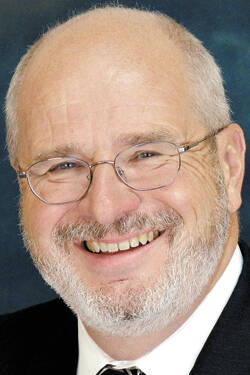
John Krull
My parents were both strong-willed people.
Dad’s determination was fatalistic in nature. When he was a toddler, a family tragedy dropped Dad and his older brother — my Uncle Ray — in a Minnesota orphanage, where they lived and went to school for years. Even when they got out of the orphanage, the parenting the boys received was uncertain and often absent.
My father had a natural talent for sports, one his father and stepmother thwarted rather than nurtured. In doing so, they denied Dad the very thing that might have brought him solace during a difficult youth.
The lesson Dad took from his growing-up years was that much of what afflicted a person was beyond his control. That which could not be altered must be accepted — and somehow endured.
He spent a lifetime pretending that even the deepest hurts didn’t touch him.
Mom’s fire burned differently. The eldest daughter of a man who escaped the southern Indiana hills to become the first in his family to earn a college degree, she was a daddy’s girl. She inherited her father’s hunger to resist unjust constraints.
Born later, she might have become a brilliant attorney, for she was endowed with gifts of analysis and argumentation. But she came of age in an era in which women — particularly ones with hill-country backgrounds — were discouraged from pursuing such paths.
Instead, she became an elementary school teacher, the most accessible profession for talented women of her generation.
To this day, men and women who are in their 60s and 70s tell me that my mother was the best teacher they ever had.
Teaching, though, did not speak to all of her dreams. She believed any obstacle could be overcome if one worked hard enough and one’s resolve was strong enough.
Her frustrated ambition and his often-uncommunicative fatalism created friction from the beginning.
I understand why they were drawn together.
Both were bright, good-looking and accustomed to being overlooked or underestimated because of their backgrounds. They shared similar resentments.
But I also know why they could not make it as life partners. Their world views were too different, and neither could bend to the other.
They struggled at their marriage for 16 years, producing three children along the way. I came first, followed by my sister two years later and our brother six years after that.
My parents’ unhappiness wasn’t noisy.
Rather, their dissatisfaction cast a cloud over their shared home, one that lifted when they split, not long after I turned 15.
If their marriage was a failure, their divorce was a success. Freed from having to depend upon each other for things the other couldn’t provide, they learned quickly to be civil — and eventually came to feel an unexpressed and often denied concern for each other.
During the near half-century following their divorce, they would ask me, in an elaborately offhand manner, how the other was doing. When one was facing hardship, the other experienced genuine sympathy.
As a young man, I felt marked by the unhappiness of my childhood. As I grew older, though, I came to realize that the two remarkable human beings who brought my siblings and me into this world had shaped us in important ways.
From our mother, my sister, my brother and I learned to find ways to move forward even in the face of opposition and to think beyond the next maneuver. Our father taught us not to stay down when we’d been knocked down and to shrug off even the deepest lacerations when confronted by those who wished us ill.
My younger brother died of esophageal cancer 18 months ago. His death was a wound that grieved both my parents to the end. My mother’s grief expressed itself in seething anger at unjust and unkind fates. My father’s sorrow turned inward as he struggled, blind and in his middle 90s, to pretend once again that he hadn’t been hurt.
Dad and Mom died on the same day, June 23, about 80 minutes and 70 miles apart.
Their deaths rocked my sister, our spouses, our children and me. It is a hard, hard thing to lose one’s parents, even when they are ready to go.
But my sister and I and our families will get back on our feet and find ways to move forward.
That’s what our mother and father taught us to do.
And we are their children.
John Krull is director of Franklin College’s Pulliam School of Journalism and publisher of TheStatehouseFile.com, a news website powered by Franklin College journalism students, where this commentary originally appeared. The opinions expressed by the author do not reflect the views of Franklin College. Send comments to [email protected].
